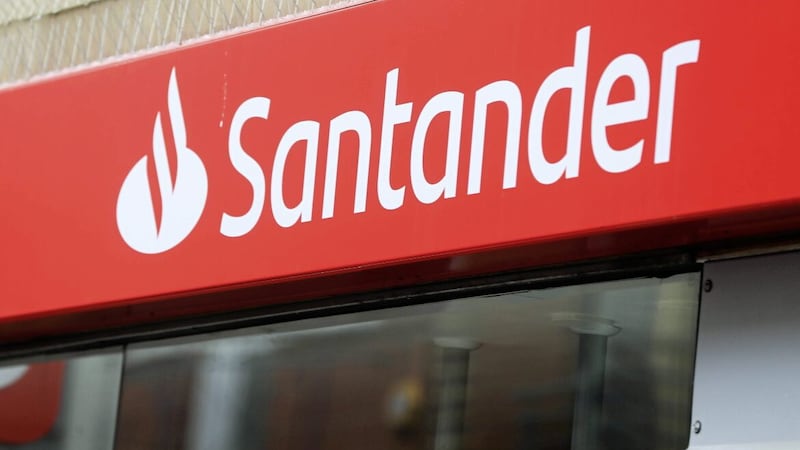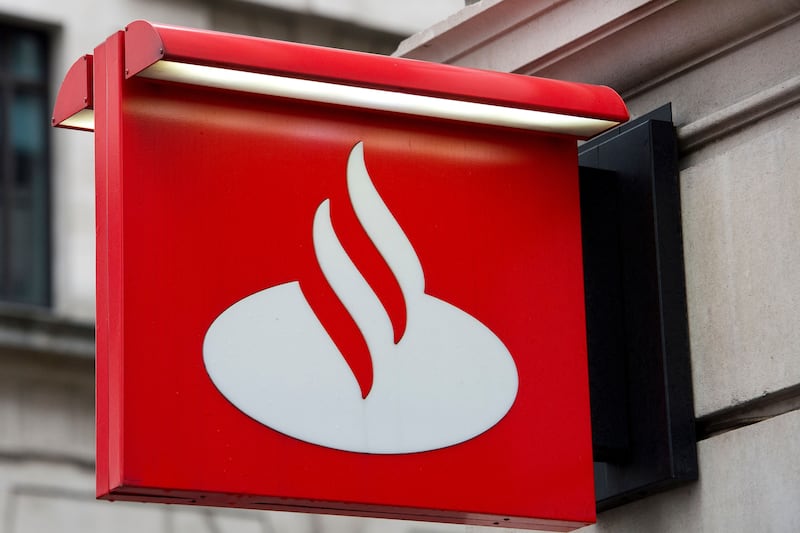HIGH demand for mortgage lending has helped boost profits for Santander, but the UK banking giant set aside more than £100 million to cover loan defaults amid the cost-of-living crisis.
The Spanish-owned bank, which has 21 branches in Northern Ireland, reported its profit before tax jumped 32 per cent to £993 million in the six months to June 30, up from £751 million a year earlier.
Interest rate hikes and increased mortgage lending thanks to a buoyant housing market meant the bank took in 11 per cent more income from net interest.
But Santander put by £118 million in credit impairment losses as the bank prepares for a deteriorating economy, with high interest rates and rising inflation expected to impact customers' ability to repay loans.
Santander's chief executive Mike Regnier said the rising cost of living is impacting customers, though they have not yet seen any significant stresses reflected in consumer credit.
Mr Regnier said: "We are living through uncertain economic times and our priority remains doing all we can to support our customers and people.
"We know many of them are worried about the rising costs of living and doing business, so we have increased the support available through our digital channels on a range of key issues including energy costs, spending and budget planning."
Inflation continuing to surge, a turbulent political environment, new Covid strains, and a shrinking labour force could all contribute to a worsening economic climate, the bank predicted.
Santander said it expects economic growth to slow and the base rate of interest to reach 2.25 per cent in 2023.
But if inflation remains stubbornly high and fails to ease back, interest rates could peak at 5 per cent in 2024 as the Bank of England looks to try to bring inflation back to target, the lender warned.
The firm's results showed it also managed to reduce costs in the first half of 2022, cutting expenses by 12 per cent from £1.34 billion to £1.19 billion.
The UK company has previously announced steps to reduce operational costs by axing 111 branches and cutting jobs by reducing 40 per cent of head office space.
But it had to fork out more on fraud reimbursement this year as customers fell victim to scams, resulting in £63 million in charges.
Furthermore, the bank reported £2.9 billion of outstanding bounce back and Covid business loans given to pre-existing customers and said it expects to mitigate potential fraud losses.
Meanwhile from last week Santander has cut its branch opening hours in what it says is a response to long-term trends in customer behaviour (branches will now operate from 9.30am to 3pm on weekdays, instead of until 4.30pm, and will close 12.30pm instead of 4pm on Saturday.
The branches impacted in Northern Ireland on the Saturday changes include Armagh, Ballymena, Bangor, Belfast, Cookstown, Derry, Downpatrick, Glengormley, Larne, Lisburn, Lurgan, Newry and Newtownards.







